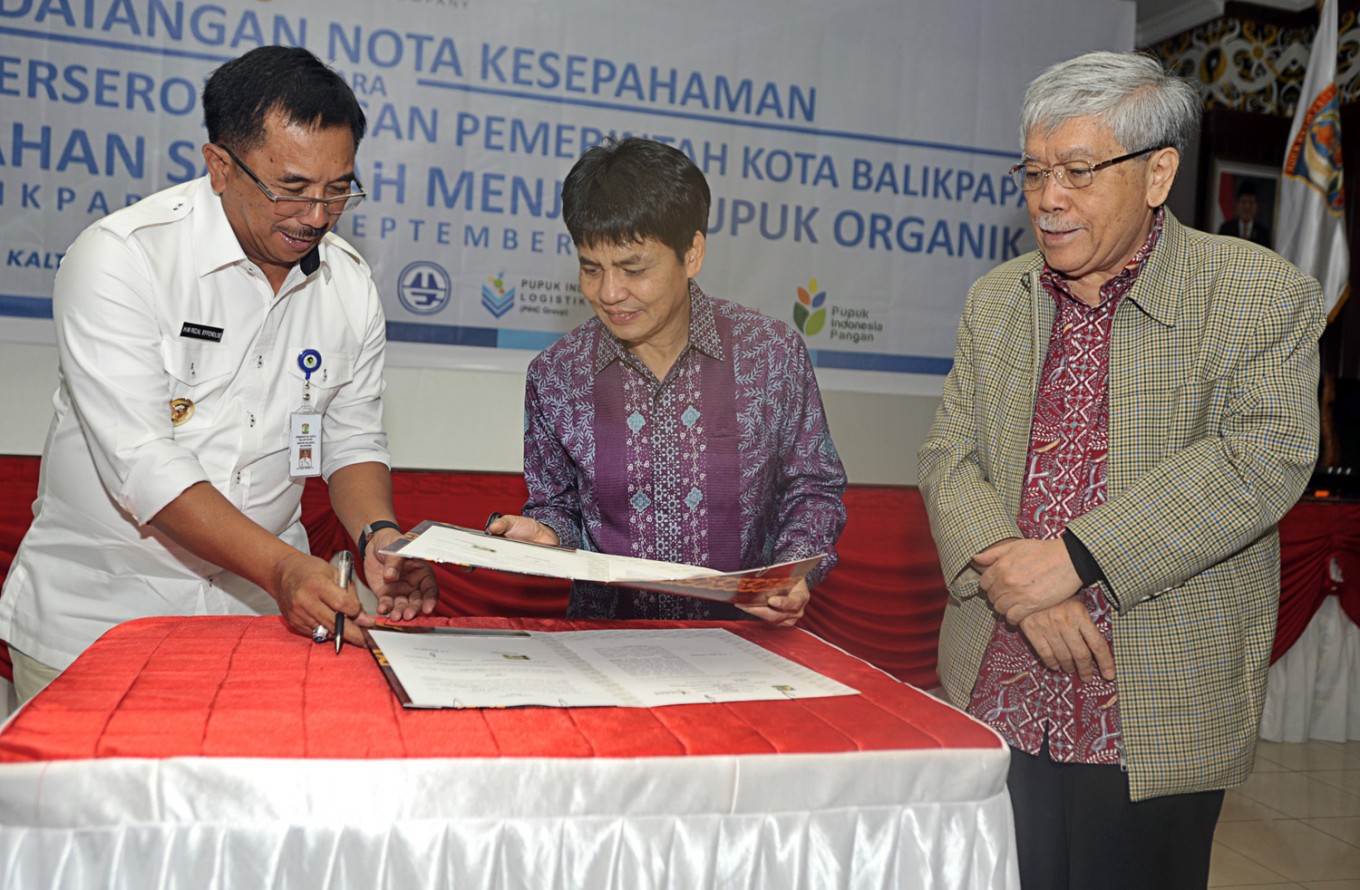Popular Reads
Top Results
Can't find what you're looking for?
View all search resultsPopular Reads
Top Results
Can't find what you're looking for?
View all search resultsWaste processed into organic fertilizer in East Kalimatan
Change text size
Gift Premium Articles
to Anyone
 Partnership – The president director of a state-owned fertilizer producer, Aas Asikin Idat (center), and Balikpapan mayor Rizal Effendi (left) sign a memorandum of understanding concerning the processing of waste into organic fertilizer in Balikpapan, East Kalimantan, on Wednesday. Pupuk Indonesia commissioner Bungaran Saragih (right) witnessed the signing. (Antara/Audy Alwi)
Partnership – The president director of a state-owned fertilizer producer, Aas Asikin Idat (center), and Balikpapan mayor Rizal Effendi (left) sign a memorandum of understanding concerning the processing of waste into organic fertilizer in Balikpapan, East Kalimantan, on Wednesday. Pupuk Indonesia commissioner Bungaran Saragih (right) witnessed the signing. (Antara/Audy Alwi)
T
he local administration in Balikpapan, East Kalimantan, has agreed to become the supplier of organic waste to state-owned fertilizer producer PT Pupuk Indonesia, which will use it as a raw material for the manufacture of organic fertilizer.
“Balikpapan has quite a high potential for organic waste production, amounting to 63 million tons per year,” Pupuk Indonesia president director Aas Asikin Idat said in a recent interview in Balikpapan.
Data shows Balikpapan produces a total of 93 million tons of organic and non-organic waste every year. Most of the waste ends up in the Manggar landfill site (TPA), about 30 kilometers from the city’s downtown.
“We will take a role as the sorter of the waste,” Balikpapan mayor Rizal Effendi said. Only selected waste would be provided as raw material for the organic material.
The Balikpapan administration and PT Pupuk Indonesia has signed a memorandum of understanding to cooperate, expecting that the project would be up and running within a year.
Through its several subsidiaries, such as PT Pupuk Kalimantan Timur, PT Pupuk Sriwijaya and PT Petrokimia Gresik, Pupuk Indonesia has the capacity to process up to 2 million tons of organic fertilizer per year, Aas said.
Half of the company’s total annual production is used to make the subsidized organic fertilizer required by Agriculture Minister Regulation No. 60/2015.
Indonesia needs 6.9 million tons of organic fertilizer per year. This is based on a calculation of the amount of the country’s active agricultural areas and a fertilizing pattern of 5:3:2, or 500 kilograms of organic fertilizer, 300 kg of urea and 200 kg of NPK per hectare. (ebf)









